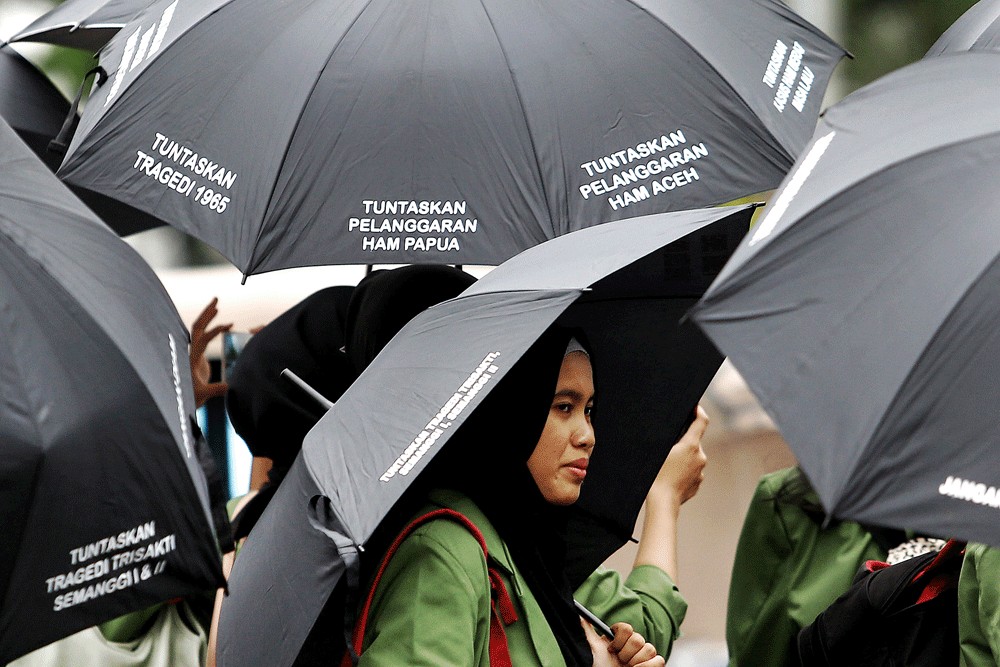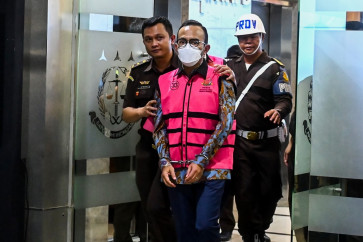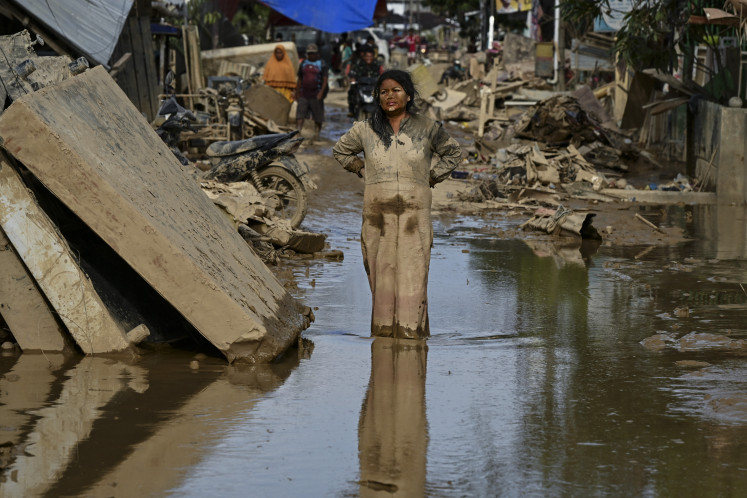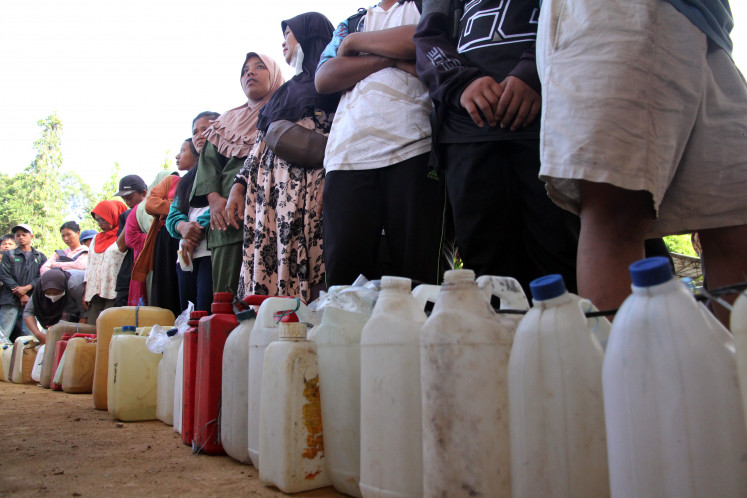Popular Reads
Top Results
Can't find what you're looking for?
View all search resultsPopular Reads
Top Results
Can't find what you're looking for?
View all search resultsGovt mulls redress for past atrocities
Move comes as Jokowi acknowledges 12 past human rights violations, but victims, activists skeptical.
Change text size
Gift Premium Articles
to Anyone
T
he government is preparing to "rehabilitate" the rights of victims and families of victims of a dozen serious past human rights violations after President Joko “Jokowi” Widodo on Wednesday acknowledged and expressed regret over the country's dark events.
Coordinating Political, Legal and Security Affairs Minister Mahfud MD said the government was considering providing reparations in the social and health sectors, as well as scholarships and “physical rehabilitation”, following recommendations from a nonjudicial settlement team led by veteran diplomat and human rights activist Makarim Wibisono, tempo.co reported.
“The President will summon some ministers, such as the social affairs minister, public works and housing minister, finance minister, military and police chiefs, education minister and others to be assigned a task based on this recommendation,” Mahfud said on Wednesday.
Mahfud did not provide details, and questions remain over how the government would identify all victims or how massive the campaign would be.
But he said that both judicial and nonjudicial settlements would continue to run in parallel.
The move came after the nonjudicial settlement team submitted its 11-point recommendations last month, which included that the government should acknowledge and express regret over past atrocities, restore victims' rights and build an oversight mechanism for recommendations implementation.
On Wednesday, Jokowi followed the recommendations, admitting that 12 incidents amounting to gross human rights violations had taken place in the country's past, spanning the period between 1965 and 2003 prior to his tenure as leader, and expressing his regret. He said the government was trying to "rehabilitate the victims' rights [...] without negating the judicial resolution". He did not elaborate on how it would do that.
They include the anticommunist purge from 1965 to 1966 that killed, according to some estimates by historians and activists, at least 500,000 people.
"With a clear mind and a sincere heart, I, as the President, admit that gross human rights violations have happened in various events and I very much regret that they happened," he said.
"I have sympathy and empathy for the victims and their families."
Read also: Jokowi draws ire for decree on human rights abuses
Jokowi’s plan to resolve past rights atrocities through nonjudicial settlement was first announced in his annual state of the nation address in August. This was followed by the establishment of the team through the signing of Presidential Regulation No. 17/2022.
Social aid?
Institute for Policy Research and Advocacy (Elsam) executive director Wahyudi Djafar suggested that the government should ensure a comprehensive process in making reparations and restoring the dignity of victims, who for decades had experienced systemic stigmatization and discrimination.
“Making reparations to victims and restoring their dignity should not mean providing a scheme that is charitable in nature, such as bansos [social aid],” he said, adding that the government should start identifying victims and creating a database of victims by also involving the National Commission on Human Rights (Komnas HAM).
Victims and families of victims were divided over the government's reparation plans.
Bedjo Untung, a victim of the 1965 tragedy and chairman of the 1965 Murder Victim's Research Foundation (YPKP 65), welcomed the initiative because many victims of the tragedy continued to suffer as their assets were confiscated during the tragedy and they did not have the right to a pension.
But Maria Catarina Sumarsih, mother of Benardus Realino Norma Irawan, who was shot dead in the Semanggi I tragedy, rejected any compensation before the perpetrators that killed her son were brought to justice.
‘Salt in the wound’
Victims and activists said the acknowledgment and expression of regret from Jokowi were not enough without cases being resolved in court and an apology.
“The President’s acknowledgment and regret should be followed by an apology,” said Ita Fatia Nadia, a historian and the wife of a Buru Island political prisoner of the 1965 tragedy. "The nonjudicial recognition should also be the beginning to bring the cases to a judicial process."
Sumarsih, meanwhile, called the president's statement merely a publicity stunt as if he was fulfilling his vows to settle past rights abuse cases during his election and reelection campaigns.
Usman Hamid, director of Amnesty International Indonesia, said that a mere acknowledgment without efforts to bring to trial those responsible for abuses “will only add salt to the wounds of victims and their families”.










